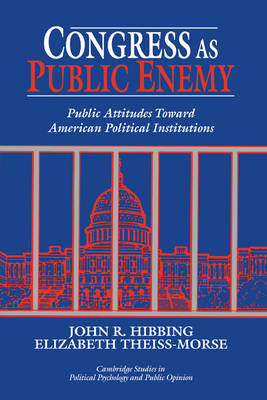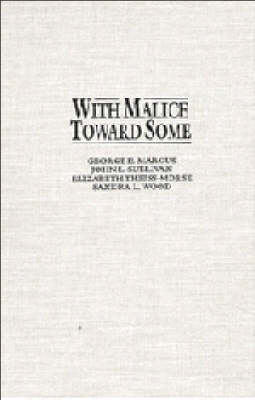Cambridge Studies in Public Opinion and Political Psychology
3 total works
Americans often complain about the operation of their government, but scholars have never developed a complete picture of people's preferred type of government. In this provocative and timely book, Hibbing and Theiss-Morse, employing an original national survey and focus groups, report the governmental procedures Americans desire. Contrary to the prevailing view that people want greater involvement in politics, most citizens do not care about most policies and therefore are content to turn over decision-making authority to someone else. People's wish for the political system is that decision makers be empathetic and, especially, non-self-interested, not that they be responsive and accountable to the people's largely nonexistent policy preferences or, even worse, that the people be obligated to participate directly in decision making. Hibbing and Theiss-Morse conclude by cautioning communitarians, direct democrats, social capitalists, deliberation theorists, and all those who think that greater citizen involvement is the solution to society's problems.
Congress as Public Enemy
by John R Hibbing and Elizabeth A. Theiss-Morse
Published 29 September 1995
This timely book describes and explains the American people's alleged hatred of their own branch of government, the US Congress. Intensive focus group sessions held across the country and a specially designed national survey indicate that much of the negativity is generated by popular perceptions of the processes of governing visible in Congress. John Hibbing and Elizabeth Theiss-Morse argue that, although the public is deeply disturbed by debate, compromise, delicate pace, the presence of interest groups, and the professionalization of politics, many of these traits are actually endemic to modern democratic government. Congress is an enemy of the public partially because it is so public. Calls for reform, such as term limitations, reflect the public's desire to attack these disliked features. But the authors conclude, the public's unwitting desire to reform democracy out of a democratic legislature is a cure more dangerous than the disease.
With Malice toward Some
by George E. Marcus, John L. Sullivan, Elizabeth A. Theiss-Morse, and Sandra L. Wood
Published 29 September 1995
With Malice toward Some: How People Make Civil Liberties Judgments addresses an issue integral to democratic societies: how people faced with a complex variety of considerations decide whether or not to tolerate extremist groups. Relying on several survey-experiments, Marcus, Sullivan, Theiss-Morse, and Wood identify and compare the impact on decision making of contemporary information, long-standing predispositions, and enduring values and beliefs. Citizens react most strongly to information about a group's violations of behavioral norms and information about the implications for democracy of the group's actions. The authors conclude that democratic citizens should have a strong baseline of tolerance yet be attentive to and thoughtful about current information.


